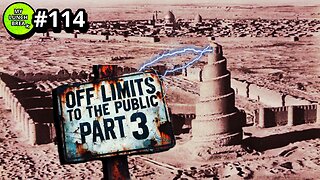Premium Only Content

Episode 946: Purity: Divorce, Free Love & Damaged Children - Part 2
Plinio Corrêa de Oliveira
The countries that admit divorce live in face of a contradiction: first they admit divorce, but then they have to put limits on it, otherwise the family is completely dissolved and society enters into moral chaos.
Even with limits, divorce is always permitted in two cases: when one of the spouses commits adultery and when one spouse beats the other. Once the principle of divorce is accepted in society, there is no escape – these two cases have to be included.
Republican divorce by Jean B Mallet
Couples lining up for the 'republican divorce' established by the French Revolution
In the case of adultery, one of the spouses – let us suppose the wife – appears before the judge and says: “My husband is committing adultery.” The judge calls the husband, who admits this is true. So, according to the rules of justice, by acknowledging the fact the husband becomes a defendant who pleaded guilty. With this, the judicial process closes. The judge pronounces the divorce and that marriage is ipso facto dissolved.
Since today a man who commits adultery faces no public censure – it is a grave moral error of the public, but this is the way it is – the husband does not lose face for being unfaithful to his wife. Divorce becomes almost a routine without any social censure.
As for the case of violence, let us suppose an elderly couple where the accusation of adultery is less likely to be believed. The wife appears before the judge and says: “Every morning, my husband throws a shoe at me.” It is a thing an old man might do to an old woman. The judge calls the man and asks if he really does this, and he admits it. He says: “Yes, I do. I have been putting up with this woman, who is absolutely insupportable, for more than 30 years. I don’t want her around any longer, so I throw a shoe at her.”
The judge asks: “Then you confess your guilt.” The man replies: “I not only confess it, I proclaim it. And if I stay married to her, I’ll keep throwing a shoe every day at her.” The judge answers: “But she could be hurt.” The man: “I don’t care.” So, in the end the divorce is granted.
In other words, when a society admits divorce into its civil laws, it is granted almost every time a spouse requests it. After a divorce law is approved, the number of dissolution of marriages increases at a galloping speed. At first, the number is small, but it starts to accelerate quickly, heading toward a situation of a kind of free love. That is, for almost any reason one spouse can leave the other.
What are the results of this for the family size and formation of the offspring?
Divorce reduces the number of children
When a husband and wife know that they will stay together for their entire lives, they generally do not have any special worry about having many children. But if the spouses are not sure about the stability of their marriage, they want to have the least number of children possible because should a new marriage occur, the children of the previous marriage become an inconvenient leftover. They are viewed as a source of problems and expenses for the new union.
A painting of a Large and stable family
The indissoluable marriage produces large families and stable societies
Let us imagine, for example, a couple where the husband is in his fourth marriage and the wife in also in her fourth – a situation not uncommon in countries with divorce. Let us suppose also for the purpose of this talk, that both of them followed natural law and had as many children as they should. What would be the psychological and moral state of the children from the first union?
They saw their mother going through all kinds of different husbands. With each change, they had to adapt to a new orientation of a different head of family. What often happens is that the children are sent to boarding schools and colleges to get them out of the way, or are juggled between the homes of the divided parents. After four marriages, this woman would have a strange mélange of children, each group with different physical characteristics.
When the birthday of one of them comes, she calls the child on the telephone and says: “Hello darling, how are you? I love you so much! You’re going to receive a wonderful present today that I bought for you! You see that your mother did not forget you. Now I’m sending you a big kiss. Good-bye.” This is the kind of maternal affection a child receives. In a certain way it is understandable, because if she were to visit each of her many children from previous marriages, she would spend a lot of time on the road. To avoid this sort of situation, the tendency of almost all women in a society with divorce is to practice birth control.
The father acts likewise. If the man is not wealthy, he has to work harder to pay for his many children from previous marriages. He makes the sacrifice, but often unwillingly since the children remind him of the bitter unions he made in the past. These children become a burden for him, making his situation terrible. So, normally a man will also practice birth control.
When divorce is legal in a country, the parents necessarily avoid their offspring.
Therefore, if it true that one, indissoluble marriage encourages procreation, so also is it true that marriage with divorce leads to a fewer number of the children.
This is why the countries that allow divorce have birth rates that are much lower than those of countries that forbid it.
Divorce and the formation of the children
Nothing is more favorable for the formation of the children than a stable home life, where the father and mother live together, have a mutual esteem for each other and support one another in the education of their children.
A child suffering between two feuding parents
It is the child who suffers in the broken home
Nothing can be more harmful for a boy or a girl than to live in a boarding school and receive different orientations from his father and his mother regarding his formation. This breaks the paternal authority and the unity necessary for a good formation. Our Lord taught, “Every kingdom divided shall perish.” This applies here also. A formation without unity is precarious. Therefore, divorce propitiates the worst possible formation for the children.
How does divorce affect their mental state?
It is evident that a calm home – a home where harmony reigns – has an ambience favorable to the psychological health of the children. On the contrary, if a home is divided, a child at times will take the side of the father and at times, the side of the mother. Or if he is raised outside the home, he will have poor conditions to develop a healthy psychology and stable personality. The child of a broken home is likely to be a nervous or unstable person. It is another bad consequence of divorce.
Thus, birth control and the poor formation of children are the normal outcomes of divorce.
Free love and offspring
If these are the bad fruit of divorce, imagine the results of free love, which is officially supported by the State in communist countries.
Free love from the legal standpoint is a situation where in practice marriage does not exist. What is called a marriage in Russia according to the civil law is when a man and a woman appear before a civil clerk to declare that they are living together in the same place – nothing more than that. If they want to separate, they just need to file a new paper acknowledging that one of them changed domicile. It is understood that that union ended. That is all it takes. This is not much different than what happens in a chicken coop. If a roster and a hen could think, they would be married – according to communist law – until the moment that one was moved to another yard.
Russian women shortly after aborting their children
Russian women who just aborted their children. The average rate of abortion in Russia is 4 per woman.
Now let us imagine the situation of a woman in Russia. If she follows natural law, in her age of fertility, she could become pregnant almost every year. That is, she would have to pass through all the inconveniences, risks and pains of a pregnancy every year. Would it be worthwhile to do this with every new “husband” that she has? What woman would want such a situation? It is not worth the trouble. The consequence is that in Russia women are very interested in avoiding having children.
The men, for similar reasons, also do not want this responsibility. In a communist State, a “husband” can change “wives” two or three times a year. Let us imagine a salesman who travels frequently from Moscow to Vladivostok. He may have a “wife” in each city where he stops to sell his goods. He could end by having 20 or 30 children, obliging him to have a special notebook just to keep track of them. Who wants a situation like this? The result is that he takes measures to prevent the birth of any child. Otherwise, his immoral life would lead him to untold problems and misery.
Hence another rule follows: if divorce tends toward limiting the number of offspring, free love tends toward not have any children at all.
I know that among some of the simple people of Russia, free love has not taken root. Even though the Schismatic Church admits divorce, they still have a religious tradition that inclines them toward indissolubility of marriage. Notwithstanding, for the purpose of this talk what matters is the conclusion: that free love is opposed to procreation and an abundant offspring.
It is not necessary to demonstrate here that free love is contrary to the formation of the children. The children of free love are in much worse conditions than those of divorce. Likewise, in a regime where free love is implanted, the psychological balance of the children are almost always impaired.
Therefore, we can conclude that the only place where the sexual act effectively accomplishes the end for which it was intended by God is inside the one, indissoluble marriage. Divorce and free love prevent – partially or almost completely – the birth of children and their good formation. They are, therefore, against nature and against the will of God.
Divorce and free love are also censurable because, in the end, they are just legal disguises for the practice of impurity.
-
 1:50:38
1:50:38
Mally_Mouse
5 hours agoSaturday Shenanigans!! - Let's Play: Mario Party Jamboree
31.3K -
 1:13:00
1:13:00
Patriots With Grit
9 hours agoWill Americans Rise Up? | Jeff Calhoun
24.9K10 -
 14:55
14:55
Exploring With Nug
9 hours ago $8.88 earnedWe Found Semi Truck Containers While Searching for Missing Man!
44K7 -
 27:57
27:57
MYLUNCHBREAK CHANNEL PAGE
17 hours agoOff Limits to the Public - Pt 3
86.6K57 -
 38:07
38:07
Michael Franzese
10 hours agoLeaving Organized Crime and Uncovering Mob in Politics: Tudor Dixon and Michael Franzese
78.6K14 -
 2:42:54
2:42:54
Jewels Jones Live ®
2 days agoAMERICA IS BACK | A Political Rendezvous - Ep. 111
64.3K46 -
 8:47:33
8:47:33
Due Dissidence
1 day agoLIVE: Workers Strike Back Conference ft. Chris Hedges, Jill Stein, Kshama Sawant, and More!
106K56 -
 8:36:37
8:36:37
Right Side Broadcasting Network
5 days agoLIVE REPLAY: CPAC 2025 Day Three with President Donald J. Trump - 2/22/25
442K97 -
 1:05:34
1:05:34
The Big Mig™
18 hours agoConfirmed Kash Patel New FBI Director, Bring On The Pain |EP483
105K28 -
 53:59
53:59
Tactical Advisor
14 hours agoThe Vault Room Podcast 009 | Everyone Getting $5000?!
82.7K12